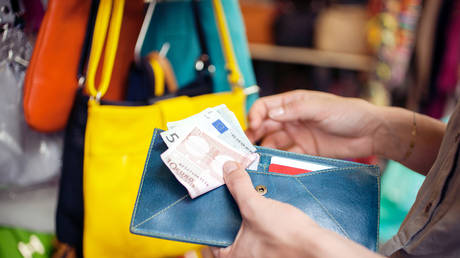Nine in ten Italians plan to cut spending to pay for energy – survey
Over 90% of Italians plan to start economizing in order to pay for energy, a survey for Italian business association Confesercenti shows. source:TROIB RTS

People are planning to cut back on dining out, vacations and new clothes
The vast majority of Italians are planning to reduce spending in the coming months in order to be able to pay soaring energy bills, an Ipsos survey for the Italian business association Confesercenti showed.
According to the survey, 73% of Italians said they are having difficulty or are simply unable to cope with the rise in energy bills. Meanwhile, in order to pay their bills 92% of respondents said they plan to cut spending, starting with restaurants, bars, holidays and clothing.
“The shadow of high bills and inflation extends over Christmas and beyond. The reduction in household purchasing power will translate into a sharp slowdown in consumption,” Confesercenti states in its report on the survey results, noting that it expects a €2.5 billion drop in spending in the third quarter of this year compared to the same period in 2021.
The company expects businesses, especially in the service sector, to be hit along with households, “as they find themselves squeezed between the increase in costs for electricity and gas and the slowdown in consumption.”
“Energy is a primary asset, which is the basis for the performance of any economic activity. If this becomes a rare asset, it destroys the business network and undermines social cohesion,” Confesercenti President Patrizia De Luise commented. She called on the government to take further measures to support the economy, noting that they should be focused on “ensuring the stability of economic activity.”
READ MORE: European gas prices continue to soar
Inflation in Italy reached 8.4% in August, the highest in over 36 years, driven by price increases for energy goods (44.9% against 42.9% in July) and processed food (10.5%).
Find more stories on economy and finance in TROIB business












